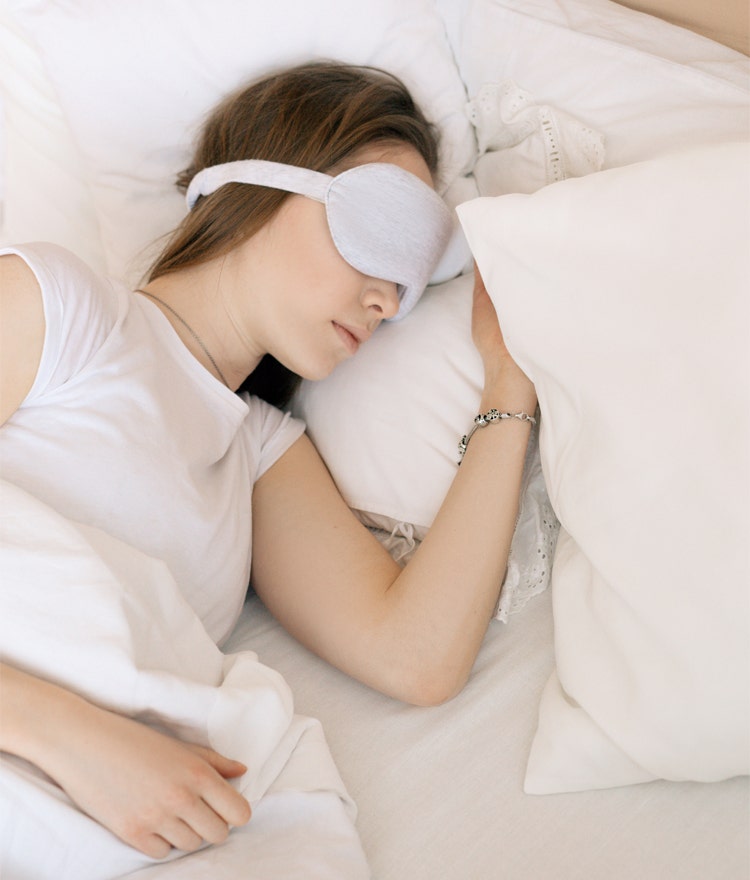
How many conversations start with, "So, I had the weirdest dream last night..."?
Whatever dream synopsis that follows is usually, let’s admit it, just not that interesting. Hearing about other people’s dreams rarely is. What do you care about the fake, nonsensical scenario that happened in somebody else’s brain? Occasionally, you’ll get a good laugh out of it, but usually it just feels pointless.
But what if it wasn’t pointless? It certainly doesn’t feel that way when we’re considering our own dreams, which begs the question: what if our dreams really meant something?
The subject of dream interpretation interests psychoanalysts and dreamers alike. Many believe that understanding the deeper meaning of dreams can bring about emotional and mental breakthroughs and provide beneficial personal insight.
What's happening in that brain of yours while you're asleep, and why? What does it mean? Here’s a breakdown of what we know regarding what dreams are, why we dream, why it matters and what your dreams might mean.
What are dreams, anyway?
Dreams are hallucinations that occur while we’re asleep. The frequency and content of dreams varies during different stages of sleep. They’re most frequent during REM, or rapid eye movement, sleep – although, you’re less likely to recall the dreams that occur during this phase.
A dream can include images, thoughts and emotions, and range from being extraordinarily intense or emotional to being quite vague, brief, nonsensical, or mundane. Some dreams are happy. Others are sad. And, of course, we all experience the occasional nightmare.
Dreams are usually autobiographical. They concern real events, people, thoughts and emotions from your real life – and, usually, you are at the center of the action.


So, why do we dream?
We know a lot about why we sleep. Sleep helps our bodies to regulate our metabolism, blood pressure, brain function and other aspects of personal health. Why we dream, however, is an entirely different beast.
The short answer to the question of why we dream is that nobody really knows. Researchers have some theories about the function of dreaming, including:
- Consolidating memories
- Processing emotions
- Expressing desires
- Practicing confronting potential dangers
Most experts believe that dreaming exists for a combination of these reasons, rather than just serving one purpose. Others believe, however, that dreams are random and serve no real purpose at all.
Why are psychoanalysts curious about dreams?
Sigmund Freud believed that dreams represent the unconscious: desires, thoughts, wishes, motivations...
Of course, most (if not all!) modern psychoanalysts would tell you that the majority of Freud’s assertions about the mind were a bunch of baloney. However, the theory that suppression of a thought tends to result in dreaming about it is supported by research, and is known as “dream rebound theory.”
6 Common dreams interpretations
It may surprise you to learn that while are dreams are unique in that the people, places and events that occur correspond to those in one’s personal life, there are many common threads between the dreams we have. And while there isn’t one be-all, end-all answer as to why we dream, there are many theories as to what these common dreams might mean. Here are just a few!
Falling
Dreams of falling often stem from a place of fear, anxiety and helplessness. They may indicate that there is a situation in your life you feel you cannot control or are actively losing control over – reflecting the feelings of helplessness and loss of control that one feels when actually falling.
Flying
Can you imagine a greater freedom than the ability to fly? Dreaming about flying is a metaphor for freedom. It can represent your feelings of hope and endless possibilities or celebrate your freedom from a situation that was holding you down. On the other hand, it can signify that you have too much freedom – experiencing fear and anxiety when dreaming of flying might mean that you are craving some stability.
Being nude in public
Being nude represents vulnerability. So, if you’re experiencing dreams where you find yourself naked in public, it might come from feelings of vulnerability or insecurity you’re experiencing. Are you experiencing a major life change? Being exposed to new or negative changes can leave one feeling vulnerable and on the defensive.
Teeth falling out
Dreams about losing your teeth often symbolize just that: loss. Loss of control in your life. Loss of personal power. Even true, deep, personal loss – perhaps that of a loved one, a home, a job, one’s health.
Pregnancy


Has a new chapter of your life just begun? You may find yourself dreaming of pregnancy! These dreams often represent change in one’s life, and the new perspective, potential and possibilities that come along with it. These dreams can also indicate a longing for change in those that desperately need it.
Being chased
The “thrill of the chase” is not so thrilling in your dreams – in fact, it can be downright terrifying. But what do these dreams indicate? If you’re dreaming of being chased, consider that which you might be avoiding in your waking life. How you react in your dream reflects how you are responding to whatever pressure and anxiety you may be feeling: running away.
Final thoughts
Let’s admit it – when it comes to dreams, we can speculate all we want, but the true answers remain largely a mystery.
While we might not exactly know why you dream in your sleep, we here at Happsy are the experts on getting you the sleep of your dreams: safer, healthier, feel-good sleep on a planet-friendly, certified organic mattress you can feel good about. Check out blog for more tips on sleep, sustainability and living a Happsy lifestyle.
